Rachel Yavinsky
Senior Policy Advisor

PRB supports implementation science partners with knowledge translation and strategic communication to transform social norms for adolescent and youth reproductive health.
USAID, Institute for Reproductive Health-Georgetown University
Senior Policy Advisor
Senior Program Director
Young people’s ability to forge healthy relationships is influenced by social norms—the informal rules that govern behavior in groups and societies—that are enforced by peers, families, and communities. Social norms shape behaviors related to sexual debut, intimate partner and sexual violence, and early marriage, as well as access to education and the services and information young people need to protect their health. Research has shown that investing in efforts to create normative change at the community (rather than individual) level, while ensuring supportive policies and access to good quality services, can bring about significant improvements in sexual and reproductive health.
PRB partners with the Institute for Reproductive Health (IRH), Georgetown University to support knowledge translation and strategic communication for the Passages Project, a USAID-funded implementation research project. Passages aims to address a broad range of social norms to achieve sustained improvements in family planning, reproductive health, and gender-based violence. PRB’s partnership expands Passages’ global leadership and dissemination efforts that focus on information synthesis, knowledge sharing, and capacity building.
In the first phase of the project, PRB developed a strategic communications plan to ensure the project’s legacy is well communicated to key stakeholders. Working with IRH and existing Passages consortium partners, PRB is developing a range of legacy products that are evidence-based, practical, and accessible to a targeted range of stakeholders:
Explore Passages Project resources

MOMENTUM Knowledge Accelerator leverages learning and evidence to tell a shared story and create broader impact in maternal, newborn, and child health; family planning/reproductive health; and nutrition.
USAID
Senior Program Director

Senior Program Finance Manager
Senior Program Director
Senior Director, Strategic Communications
Over the past three decades, the health status of women, newborns, and children has improved significantly. These gains, however, have not been equal across or within countries, and challenges remain. Globally, 287,000 mothers and 5 million children under age 5 still die each year, primarily in low- and middle-income countries and from preventable causes.
MOMENTUM Knowledge Accelerator is the “connector” of USAID’s MOMENTUM program, a flagship investment to accelerate improvements in maternal, newborn, and child health; family planning; and reproductive health. Through collaboration to integrate best practices and learning in local contexts in nearly 40 countries, MOMENTUM improves the reach of services and quality of care for women, children, and families within communities, at facilities, and throughout health systems. MOMENTUM Knowledge Accelerator harmonizes data capture and analysis, facilitates learning and adaptation, packages and shares synthesized knowledge, and tells the story of MOMENTUM’s investments and achievements.
MOMENTUM Knowledge Accelerator serves an innovative role across four pillars: monitoring and measurement, knowledge management, adaptive learning, and strategic communications. We work to improve measurement of complex health topics, define and implement a learning agenda to provide MOMENTUM partners with the right information to make real-time changes and learn from each other, compile and share information that can inform action within and beyond MOMENTUM, and unify and amplify MOMENTUM’s messages.
The project develops, tests, and adapts metrics for critical health topics, such as primary health care and patients’ experience of care in health facilities, and summarizes new global health measurement recommendations. We facilitate learning and adaptation on complex topics, such as the role of social accountability in respectful care, health systems strengthening responses to COVID-19, and new models of care for small and/or sick newborns. Our creative, user-friendly knowledge resources and interactive knowledge exchanges ensure that MOMENTUM is both informing and informed by the global health community, with a focus on expertise at the country level. Our communications platforms for sharing resources and insights tell the story of MOMENTUM’s mission and elevate voices of those implementing and affected by MOMENTUM’s work.
PRB leads a dynamic team that includes JSI Research and Training Institute, Inc. and Ariadne Labs, the innovation center at the Harvard T.H. Chan School of Public Health and Brigham and Women’s Hospital, as core partners. Together, the team supports the MOMENTUM suite to build on existing evidence and best practices, introduce new ideas and approaches, and facilitate adaptive learning and management of interventions to improve the health of women and children.
MOMENTUM Knowledge Accelerator catalyzes engagement with and uptake of the latest learning in maternal, newborn, child, and reproductive health within and beyond the MOMENTUM programs.
Elizabeth Leahy Madsen, Project Director and PRB Associate Vice President for International Programs
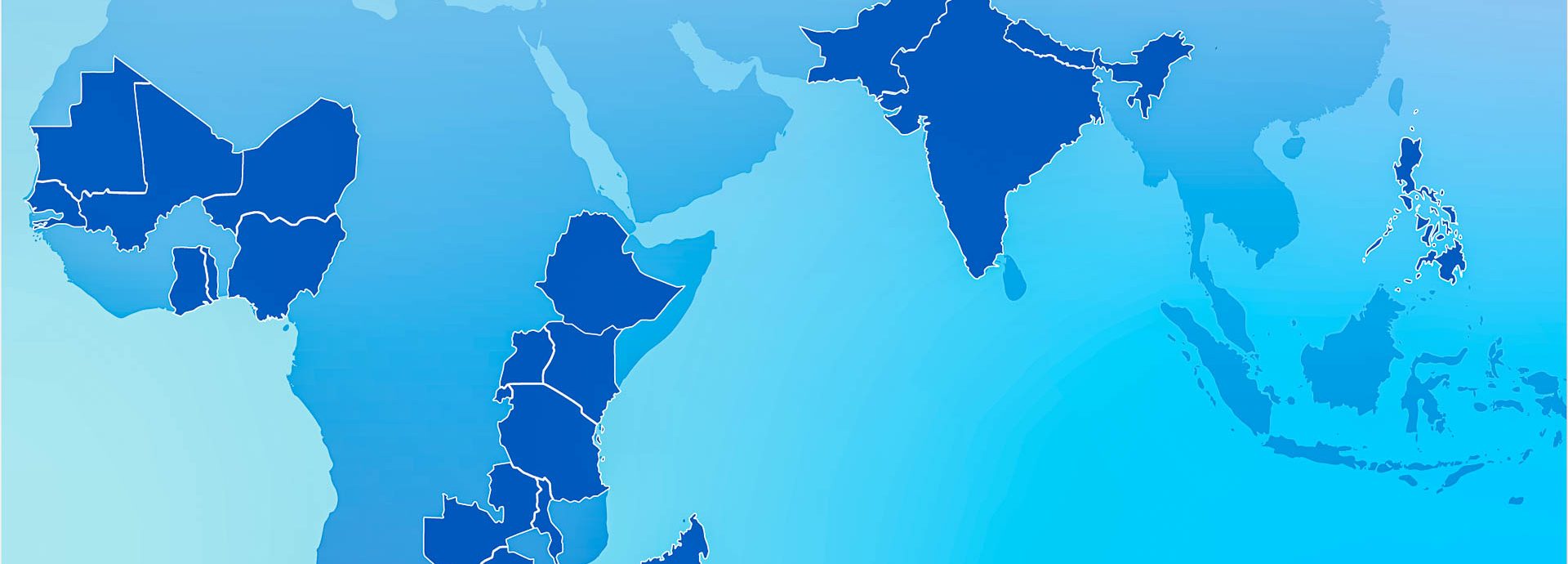
PACE and our local partners build champions, bridge sectors, and distill evidence to ensure that family planning, reproductive health, and population issues are recognized as key to sustainable and equitable economic growth and development.
USAID
Former Associate Vice President
Program Director
Africa Director, Regional Representative for West and Central Africa
Former Country Director, Kenya
Program Finance & Operations Manager
Adaptive Learning and Knowledge Management | Data Visualization and Dissemination | Demographic Estimation and Forecasting
| Distilling Research for Non-Technical Audiences | Research and Data Analysis | Policy and Advocacy Communications Training | Technical Assistance and Training | Training and Support for Journalists
Over the last two decades, many countries have realized remarkable increases in the use of modern contraception. More women and couples are using effective methods to choose when and how many children to have—benefiting their health, their children’s health, and their families’ economic prospects. However, this progress varies regionally and within countries, and demand for voluntary family planning is not fully satisfied in many USAID priority countries. To meet this need, development partners and national advocates are mobilizing to ensure that governments honor the policy, financial, and other commitments made through the Sustainable Development Goals (SDGs), Family Planning 2020 partnership, and other initiatives.
Funded by the United States Agency for International Development (USAID), the PACE Project—Policy, Advocacy, and Communication Enhanced for Reproductive Health—ensures these commitments are met at the global, national, and decentralized levels by strengthening capacities in advocacy, policy communication, and negotiation; building bridges between sectors with integrated approaches such as population, health, and environment and efforts to amplify understanding of the benefits of age-structure change across development sectors; and analyzing, distilling, and disseminating evidence and data to engage policy and advocacy audiences to act. PACE integrates the cross-cutting themes of gender, youth, and equity throughout all activities.
PACE activities ensure that family planning, reproductive health, and population issues are at the heart of policies and programs and are recognized as key to sustainable and equitable economic growth and development. Through PACE, PRB can help countries achieve Family Planning 2020 commitments, end preventable child and maternal deaths, and reach the SDGs.
Since the project’s launch in 2015, PACE has advanced political and financial commitments for family planning and reproductive health across 20 countries. In 2020, the project was extended so we can continue to:
PACE’s intensive capacity strengthening positions partners and individuals, including new cadres of champions, to implement and advocate for multisectoral development solutions that make tangible contributions to countries’ Journey to Self-Reliance (J2SR). Our approach adapts to our partners and is premised on sustainable engagement driven by their needs. We are an active part of the communities we serve, listening and working together.
Across several multisectoral approaches to development—including population, environment, and development (PED); gender; and the demographic dividend—PACE plays a critical role by providing technical expertise; identifying, training, and convening champions; and developing and disseminating cutting-edge knowledge.
PACE generates innovative approaches to analyze, synthesize, and communicate data and information to decisionmakers. PACE co-creates tools and products and applies fresh dissemination approaches in collaboration with local partners, and leads efforts to increase the use and application of data for policymaking.
PRB’s East Africa office, based in Nairobi, oversees PACE’s largest country program in Kenya, a multipronged effort supporting partners across sectors and geographies to create an enabling environment for prioritizing family planning and reproductive health and contribute to implementation of the J2SR.
For family planning advocates, no greater success exists than a dedicated and adequately funded line item in the health budget. PACE’s strategic approach to budget advocacy has paid off in Samburu County, Kenya, where concerted advocacy activities led to a first-ever budget line item for family planning, as well as an increased percentage of the county’s budget allocated to health in FY 2020/21. Over a period of months, PACE facilitated workshops to support the county health management team (CHMT), sector working groups, and departmental representatives to identify priorities for county budgeting. This continuous engagement with the CHMT has enabled them to effectively advocate to the Finance Department and County Assembly for increased funding for health and a new budget line valued at approximately $112,000 for family planning.
Nigerian youth advocates trained by PACE secured policy commitments from local leaders by creating videos focused on ending child marriage and increasing access to family planning services. BCAI, a youth-led organization launched with support from PACE, aided local youth advocates to widely disseminate the videos across popular social media platforms and in community-level policy dialogues with seven influential leaders from both the traditional and political governing structures in northern Nigeria. Following their outreach, the governor of Kano State made a public declaration to end child marriage by committing his support to the Child Protection Bill. While the legislation is still pending, sections of the bill that provide for compulsory schooling for all children as a method to reduce child marriage have been adopted into a state-level policy.
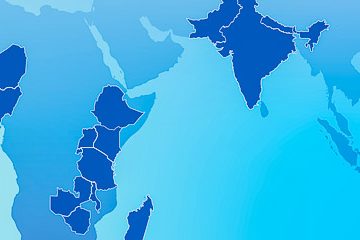
Under PACE, PRB works closely with global actors, national and local governments, USAID missions, and civil society to build champions, bridge sectors, and distill evidence through data-driven, innovative products. PACE strengthens capacities in advocacy, policy communication, and negotiation, and increases commitments to multisectoral approaches such as Population, Health, and Environment and the demographic dividend.

PACE produces original analysis and targeted communication materials to examine variations in adolescent fertility throughout Nepal. Together with local partners, PACE works to ensure that Nepal’s policies and programs use this new information on adolescent fertility to strengthen family planning programs and keep girls in school as the country promotes sustainable, equitable economic growth and development.
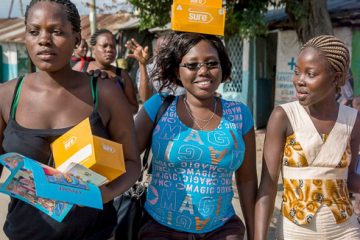
In Kenya, PACE works with national and subnational partners to ensure that sustained access to quality family planning and reproductive, maternal, newborn, child, and adolescent health is enshrined in Kenya’s policies and programs to achieve the Sustainable Development Goals and Kenya’s Vision 2030. PACE is recognized as a key partner supporting Kenya’s Journey to Self-Reliance.

The Sahel Faith ENGAGE initiative supports policy dialogue about faith and family planning in three countries—Guinea, Mali, and Mauritania—working with a task force of religious leaders, youth, and government representatives contributing to an enabling environment for policies and programs supportive of reproductive health in the Sahel.
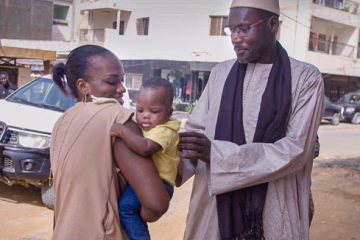
In Senegal, PACE supports religious leaders who are working to increase knowledge among their communities about the benefits of family planning, and continues to build the capacity of the media on the multiple benefits of family planning and maternal and child health services.
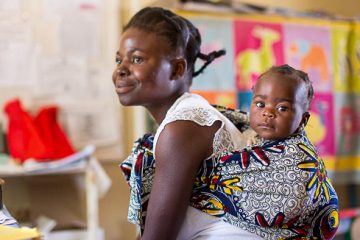
In Zambia, PACE implements innovative, strategic approaches to ensure that HIV/AIDS, population, and family planning are included in Zambia’s policies and programs as key to sustainable and equitable economic growth and development.
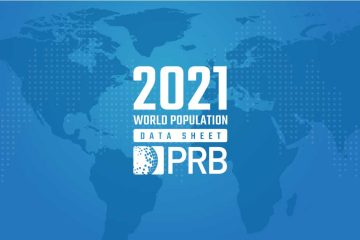
The 2021 World Population Data Sheet offers the latest population, health, and environment indicators for more than 200 countries and territories, each carefully researched by PRB’s expert team of demographers and analysts.
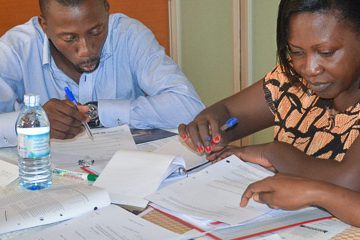
This toolkit bridges the gap that often lies between research and policy. It consolidates tools, materials, and approaches PRB has developed and refined over 30 years of training researchers to communicate with policy audiences.

Women’s decisions about family planning are complex and change over time. Understanding these shifts can help us meet women’s needs and support their goals.

In Ghana and Uganda, young people dominate the population age structure below age 15. Both countries can shift this high child dependency by empowering women to achieve their reproductive goals.

Supporting targeted local planning in the context of Nepal’s recently devolved governance, the PACE Project has released modeled estimates of adolescent fertility for the 753 municipalities in Nepal.

Yet even as governments refine their development plans and priorities, they are contending with the massive disruption caused by the coronavirus pandemic.
